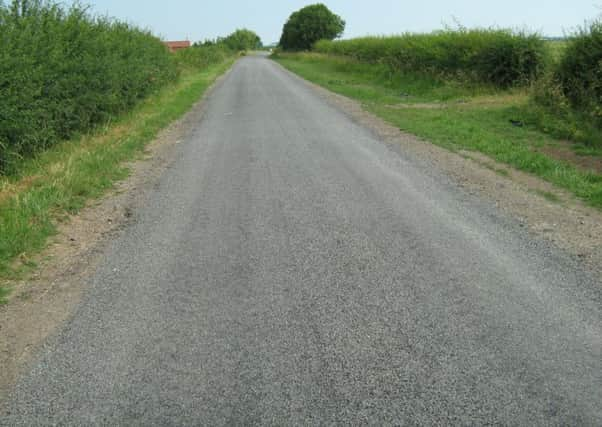County innovation allows council to save millions on resurfacing Lincolnshire roads


Lincolnshire County Council is set to repair about 19km of unclassified roads across the county, saving the authority approximately £1m on traditional methods.
The authority has developed an’ in-situ road recycling’ process for unclassified roads which not only quickly repairs damage such as pot holes and crumbling on large stretches of road, it also recycles excess material from projects on major roads in the county.
Advertisement
Hide AdAdvertisement
Hide AdThe county council is the only local authority in the country to repair roads in this way, and as such is being used as part of national studies.


The work will be undertaken on 29 sections of unclassified, pot hole damaged roads across the county with work taking between one and four days at each site. There will be road closures in place at each site, but access will be maintained.
The new process means roads should not need to be repaired again for at least 10 years, removing the need to constantly repair pot holes caused by extreme weather conditions.
Area Highways Manager Mark Heaton, who is the county lead on this work, said: “The speed of which we can carry out this work reduces disruption to motorists but has a big impact on the local road network and economy. We effectively crush the top section of the road, mix it with material taken from major road works elsewhere in the county, a binding material and chippings and then re-shape the road, eliminating pot holes and creating a better road structure. We can then surface this new section of road. This process has proved very effective in the areas where we have already used it.”
Advertisement
Hide AdAdvertisement
Hide AdLincolnshire County Council’s Executive member for Highways and Transportation, Coun Richard Davies, said: “In recent years we have seen increasing budget pressures across the council, including in the highways budget, while at the same time extreme weather conditions have caused an increase in road damage such as potholes. This process shows how innovative thinking can save both time and money and reduce disruption to motorists while being extremely effective in repairing roads.”
Since being introduced in 2013, the process has saved the authority about £3 million compared to traditional methods and has repaired about 60km of roads.
Between now and the start of August works will take place on sections of East Fen Lane, New Leake; Love Lane, Wrangle; Jolly Common Lane, Huttoft; Hills Borough Farm Lane, Thoresway; Westholmes Lane, South Kelsey; Lowlands, Saxby; Dairy Lane, Blyborough; Hazelwood Avenue and Clumber Street, Lincoln; Nocton Fen Lane, Nocton; Dunston Fen, Dunston; Fen Road, Ruskington; Waithe Lane, Ewerby; Spring Lane, Leasingham; Heath Lane, Carlton Scroop; Reedings Close, Barrowby; The Drift, Denton; Lower Bitchfield, Bitchfield; Scotland Lane, Ingoldsby, Pointon Fen North, Pointon; Dunsby Fen, Dunsby; Morton Drove, Morton; Wood Lane, Northorpe; North Drove, Counter Drain Drove and North Drove Bank, Pode Hole; and Sutterton Drove, Amber Hill.
For more information on roadworks in Lincolnshire visit www.roadworks.org